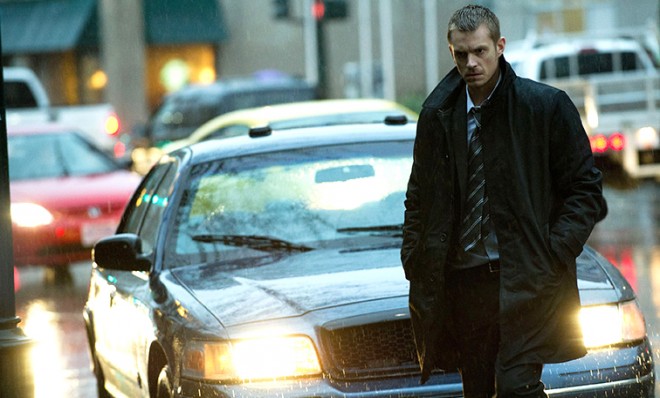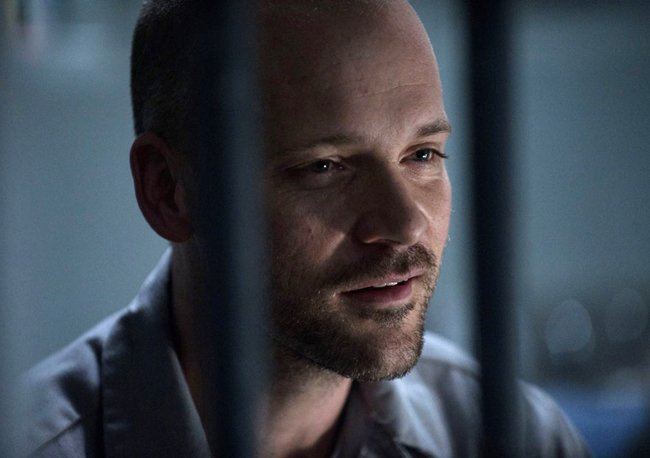Why you should give The Killing one more chance
Were you frustrated by the first two seasons of AMC's crime drama? So was I. But it's not too late for the show to redeem itself


A free daily email with the biggest news stories of the day – and the best features from TheWeek.com
You are now subscribed
Your newsletter sign-up was successful
It took two seasons for AMC's The Killing, which premieres its third season on Sunday night, to solve the murder at the center of its narrative — but many viewers gave up at the end of season one.
"This will be the last review I write of The Killing, because this will be the last time I watch The Killing," wrote HitFix critic Alan Sepinwall after viewing the first-season finale, which ended on an unexpected — and to most, unwelcome — cliffhanger. "I have no interest in going forward with a show that treats its audience this way." (Months later, Sepinwall conceded that his "anger took a back seat to professionalism" and reviewed the show's second-season premiere.)
Sepinwall's frustrations were echoed by both viewers and other critics, who felt misled that a series that was marketed by asking "Who Killed Rosie Larsen?" ended its first season by answering the question with a shrug. "The Killing started out with all the promise in the world, but quickly turned to red herrings throughout the whole first season," John Hendel, who wrote weekly reviews of The Killing's first season for TheAtlantic.com, told me in an email. "The finale was really no different. Fans had good reason to be frustrated." By the time The Killing actually solved the Rosie Larsen murder at the end of season two — a solution too dull and convoluted to bother explaining here — it had shed nearly a million viewers from its season one finale, and was swiftly canceled by AMC.
The Week
Escape your echo chamber. Get the facts behind the news, plus analysis from multiple perspectives.

Sign up for The Week's Free Newsletters
From our morning news briefing to a weekly Good News Newsletter, get the best of The Week delivered directly to your inbox.
From our morning news briefing to a weekly Good News Newsletter, get the best of The Week delivered directly to your inbox.
But something strange happened: Months after it was sentenced to death for the unforgivable crime of wasting its audience's time, The Killing got an unlikely, eleventh-hour reprieve — due less to its own merits than to the shifting business dynamics of television. As Netflix attempted to gain an edge over its increasingly powerful streaming video competitors, it invested in original programming like House of Cards and an Arrested Development revival — and, in a less remarked-upon development, set up a few mutually-beneficial partnerships with other networks. That partnership included an exclusive deal for the third season of The Killing. By shouldering some of the production costs, Netflix earned the sole rights to stream the entire third season just a few months after its finale airs on AMC.
Showrunner Veena Sud must know how narrowly The Killing avoided death, and whatever the failings of her show so far, she's smart enough not to squander this second opportunity with more of the same. So new viewers, the good news starts here: You don't need to know anything about the first two seasons of The Killing to understand the third-season premiere. The Killing has jettisoned virtually all of its dead weight — including the Richmond campaign and the dysfunction of the Larsen family — in favor of the one thing about its first two seasons that consistently worked: The sharp, prickly chemistry between detectives Stephen Holder (Joel Kinnaman) and Sarah Linden (Mireille Enos). The Killing is so eager to dump the baggage of its first two seasons that its title isn't even entirely accurate anymore; as the third season's "17 and Counting" promotional campaign indicates, The Killings would be a better fit.
The two-hour third season premiere picks up more than a year after the Rosie Larsen case, with Sarah Linden retired from the force and Stephen Holder rising through the ranks (despite a new partner, played by Gregg Henry, who seems eager to pawn off any case that seems like it might actually require some police work). When Holder's investigation into a teen girl's murder reveals that Linden worked a similar case years before, he seeks her out, drawing her back into a crime she thought she'd closed the book.
If all of that sounds familiar, that's because it is — not from The Killing, but from a hundred other cop shows before. If there's a single red flag about The Killing's third season, it's the lusty embrace of genre cliches in the central narrative, which sees both Kinnaman and Enos spouting lines that would have sounded corny 20 years ago. ("Not every victim's worth it," warns Linden in one particularly egregious scene. "You start caring, you'll end up like me.")
A free daily email with the biggest news stories of the day – and the best features from TheWeek.com
So why should you give The Killing another chance? Because even as its main narrative fails to deviate from that of the average crime drama, there's a far more interesting show happening in The Killing's margins. Peter Sarsgaard joins the cast as the sinister Ray Seward, a death-row inmate convicted of killing his wife. He spends much of the premiere toying with his captors as he tracks down Linden and her former partner (played by the great Elias Koteas, who surely has a bigger role to play in the episodes to come). Sarsgaard is good enough that there's a part of me wishes this was a different show about an unrepentant death-row inmate; he plays his scenes with an opaque, low-watt intensity, and both his cruelty and his utter disinterest in appealing his death sentence make his guilt seem obvious — except, of course, that this is a twist-laden TV drama, so nothing can be obvious.

And then there's our pool of hypothetical young victims: A series of teenage runaways, some of whom resort to prostitution when there's no more room in the overcrowded youth shelters. Though the young actors are all relatively untested (and sometimes unconvincing), there's a genuine sense of desperation (that's missing from most TV dramas) as the teens draw numbers to determine which of them will get a roof over their head for the night, knowing exactly what they face if their number isn't called. If The Killing wasn't working so hard to distance itself from the Rosie Larsen fiasco, it would do a better job calling attention to the uncomfortable truth at the heart of the new season: While the murder of a pretty high schooler consumed the show's first two years, more than a dozen homeless teens have been murdered without anyone noticing — or, perhaps more accurately, anyone caring.
In the AMC pantheon, The Killing is still nowhere near the quality of Mad Men or Breaking Bad, and there are plenty of flaws left to be worked out. I'm not sold on Bullet (Bex Taylor-Klaus), a tough, homeless lesbian teen whose dialogue sounds suspiciously like a middle-aged writer trying to approximate what a tough, homeless lesbian teen might be like. (She actually says "quit tripping" within the first half of the episode. Twice.) The writers are too quick to embrace cliches. ("You don't know me. I break things," says a teary Linden to her new boyfriend.) And — perhaps most problematically for viewers who are on the fence — the premiere ended before I was entirely sold that this mystery is interesting or complex enough to play out over an entire season.
But there is potential here — potential that The Killing hasn't had since the beginning of its first season. Even with all the police procedurals currently on the air, there's still a major hole in the TV landscape left to fill: A well-acted and well-produced crime drama that rises above the fray to tell a truly compelling mystery. The Killing's third season comes as AMC reaches a major crossroads; Breaking Bad ends this summer, and Mad Men ends next year. The Walking Dead isn't enough to keep the channel afloat, and AMC is smart enough to know it. Will The Killing squander its second chance at a first impression, or was AMC right to execute it when it had the chance? I'm not sure yet — but I'm willing to grant it a second hearing.

Scott Meslow is the entertainment editor for TheWeek.com. He has written about film and television at publications including The Atlantic, POLITICO Magazine, and Vulture.
-
 The ‘ravenous’ demand for Cornish minerals
The ‘ravenous’ demand for Cornish mineralsUnder the Radar Growing need for critical minerals to power tech has intensified ‘appetite’ for lithium, which could be a ‘huge boon’ for local economy
-
 Why are election experts taking Trump’s midterm threats seriously?
Why are election experts taking Trump’s midterm threats seriously?IN THE SPOTLIGHT As the president muses about polling place deployments and a centralized electoral system aimed at one-party control, lawmakers are taking this administration at its word
-
 ‘Restaurateurs have become millionaires’
‘Restaurateurs have become millionaires’Instant Opinion Opinion, comment and editorials of the day
